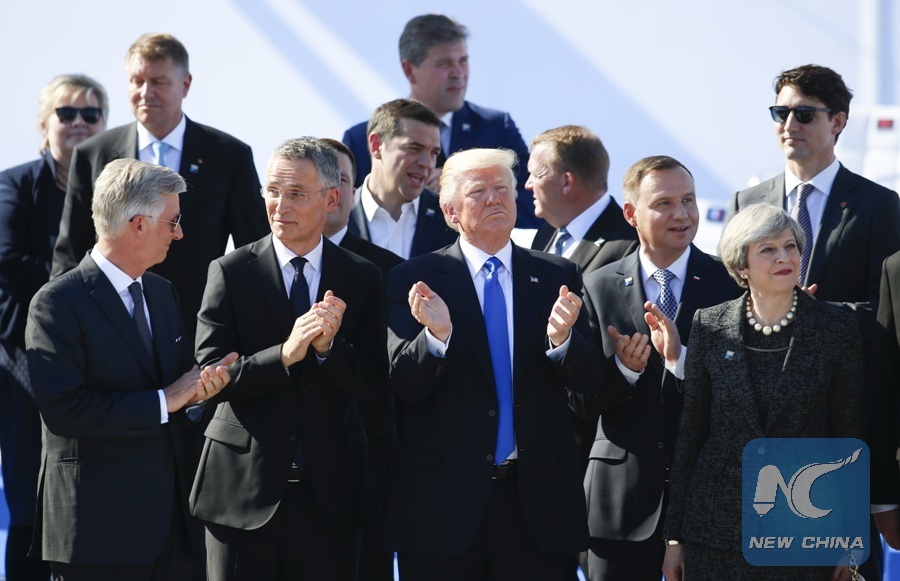
File Photo: King Philippe of Belgium, NATO Secretary General Jens Stoltenberg, U.S. President Donald Trump, British Prime Minister Theresa May (from L to R, front) and other NATO member states leaders watch air show at the handover ceremony of the new NATO headquarters during a one-day NATO Summit, in Brussels, Belgium, May 25, 2017. (Xinhua/Ye Pingfan)
WASHINGTON, May 11 (Xinhua) -- The White House said Friday that U.S. President Donald Trump will welcome North Atlantic Treaty Organization (NATO) Secretary-General Jens Stoltenberg on Thursday "to discuss the upcoming NATO summit in July and review progress on United States priorities for NATO."
According to a White House statement, Trump's and Stoltenberg's meeting will reaffirm the U.S. commitment to the alliance.
The U.S. priorities for the 29-member regional bloc include "the need for fair burden-sharing and NATO's role in the international fight against terrorism."
The Trump administration, since taking office last January, has been complaining about NATO's "obsolete" decision-making process, the failure of other members to increase their defense expenditure, and the lack of involvement in the U.S. anti-terrorism campaign in the Middle East and Afghanistan, both militarily and financially.
In a joint conference with visiting German Chancellor Angela Merkel on April 27, Trump lashed out at NATO allies, Germany in particular, for failing to increase their national defense budget to the two percent threshold of their gross domestic product, something they promised in 2014 to achieve in 10 years.
"We're protecting Europe and, yet, we pay, by far, more than anybody else," Trump said. "NATO is wonderful but it helps Europe more than it helps us. And why are we paying the vast majority of the costs?"
The trans-Atlantic rift widened after Trump on Tuesday announced that the United States would withdraw from the Iran nuclear deal and threatened to sanction companies that have cooperation with Tehran, severely undercutting Brussels' security and economic interests.
French Finance Minister Bruno Le Maire said Friday that European countries should push back harder against Trump's decision and not act as "vassals" to Washington.
Europe should not accept that the United States is the "world's economic policeman," he said, adding he wants European companies to be able to continue trade with Iran despite Trump's threat to re-impose sanctions.

